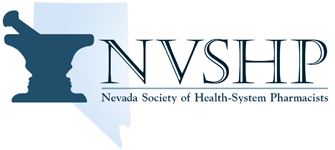Implementation of Pharmacist Counseling for Inpatient Chemotherapies Amanda Jeppesen, PharmD Background: Studies have demonstrated that pharmacist medication counseling improves patient adherence, reduces adverse reactions, increases patient understanding and satisfaction, and ultimately improves patient outcomes. The majority of antineoplastic treatment and pharmacist counseling occurs in the ambulatory setting. Inpatient chemotherapy is also a key component in the cancer care process, but pharmacist counseling is less common in the inpatient setting. As a result, the benefits of pharmacist counseling are less established for hospitalized patients. Historically, at Renown Regional Medical Center, inpatient chemotherapy education has consisted of general sessions with registered nurses. Renown Regional Medical Center’s pharmacy department has implemented a pharmacist counseling program for new-start inpatient chemotherapies. The goal of this project is to evaluate the pharmacist counseling program for newly initiated chemotherapy regimens. Jack Vo, PharmD Background: Out-of-hospital cardiac arrest (OHCA) affects approximately 350,000 individuals annually in the United States, with a low survival rate of around 9.1%.1 Post-resuscitation shock following return of spontaneous circulation (ROSC) is a common occurrence, characterized by vasoplegia, myocardial dysfunction, and hypovolemia. Epinephrine, the historically preferred vasopressor, may worsen myocardial oxygen demand and increase arrhythmia risk.2 Norepinephrine, which has stronger alpha-adrenergic activity and fewer beta-adrenergic effects, may offer improved outcomes with fewer complications. Aljay Denzel Manez, PharmD Background: The 2022 AHA/ACC/HFSA guidelines for acute decompensated heart failure (ADHF) recommend sodium glucose transporter 2 inhibitors (SGLT2i) as part of the guideline-directed medical therapy (GDMT) to improve outcomes and reduce hospitalizations. The VA Southern Nevada Healthcare System (VASNHS) has empagliflozin as its formulary SGLT2i. Limited data is available on the utilization of empagliflozin in our facility. The primary outcome is the initiation of empagliflozin for patients admitted with ADHF during hospitalization and at discharge. The secondary outcome is the rate of clinical pharmacist practitioner (CPP) interventions resulting in the initiation of empagliflozin for patients admitted with ADHF. |
